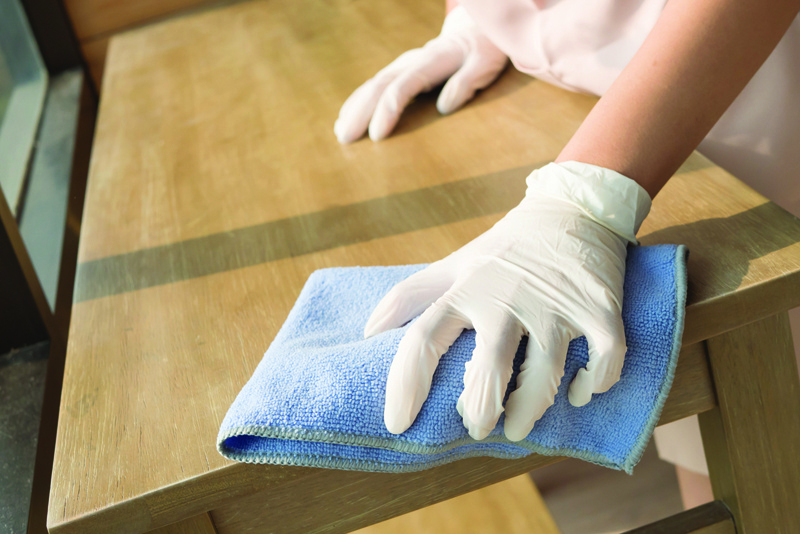By Ben Garcia
KUWAIT: Domestic helper agencies in Kuwait are charging employers more to recruit housemaids who were returned by their original employers as opposed to hiring a helper from abroad. There have been complaints in Kuwait alleging that offices are demanding excessive charges compared to the fixed KD 890 fee set by the government to recruit a housemaid. However, a representative of employment agencies in Kuwait said the offices usually charge extra for returned maids for many reasons, mainly the need to refund and compensate employers.
"When the sponsor returns the housemaid to the agency, they demand back the money they spent to recruit the housemaid," said Mariam Macapudi, President of the Filipino Association of Secretaries of Employment Agencies in Kuwait (Fil-Aseak), a group comprising of 200 licensed recruitment agencies. She claimed that upon returning the maid, employers usually demand more money than what they had initially paid to recruit the helper, thus increasing the cost of re-employment. In addition to asking the new employer to bear the cost of compensating the old employer and sheltering the maid until they find them a new home, agencies see this as an opportunity to turn a profit as well.
"The local agency here would also want to earn revenue from the fact that their services are used," Macapudi said. Once a new employer is found, the cost for recruiting a returned helper can reach up to KD 2,000. According to Macapudi, this is justified because agencies are essentially a business that seek to make a profit. "This is normal," she said. "Local agencies are charging more because that's their nature of business - they also want to earn something as well."
Agencies charge KD 890 in addition to a KD 150-KD 200 for air tickets to recruit a domestic helper from the Philippines. However, an employer in this case would have to wait for months before the helper arrives to the country (in addition to 14 days of institutional quarantine and an additional KD 500 cost for the hotel stay for unvaccinated maids).
Hiring a domestic helper who has been returned by their original employer comes with the advantage of saving time, while the fact that they are already trained makes them even more sought after by employers. In business terms, this creates a situation controlled by supply and demand, whereby agencies believe they are justified to charge higher for returned domestic helper who are already in Kuwait than workers who are still in their home countries.
However, Macapudi denied reports that there is a shortage of domestic helpers from the Philippines in Kuwait because Manila is allegedly prioritizing meeting demand of other countries such as Singapore, Japan, Canada and the US, where helpers are paid more than the $400 they receive in Kuwait. "Yes, there is demand for housemaids in that part of the world, but we have enough supply," she said. "We have people who want to work in Kuwait."
The Philippines is a major source of housemaids for Kuwait, along with Sri Lanka and India. Other labor exporting countries such as Nepal, Indonesia and Ethiopia have requested the signing of agreements to start sending workers to Kuwait. The Philippines and Kuwait earlier agreed and signed a tripartite agreement in which Kuwait agreed to provide Filipino housemaids with decent and appropriate housing equipped with all the necessities, suitable food and clothing, and medical treatment in case of sickness pursuant to the healthcare insurance system of Kuwait.
Their salary must be paid at the end of the month - not less than the designated amount signed by both parties, compensating the housemaid in case of injury during work, employers must issue a valid residency for the duration of contract, handle all the expenses to bring the housemaid, and in case of death, the employer must also bear the expenses of the deceased body.
The new tripartite contract also mentions that the employer is not allowed to assign the worker outside Kuwait without an agreement from the worker. The housemaid is also allowed to use the phone outside working hours, provided that she maintains the privacy of the household and in a manner consistent with public morals. Working hours must be 12 hours daily and employers must allow the housemaid to rest for eight continuous hours.
They must have a fully paid weekly day off, annual leave, end-of-service benefit of one full month's salary for every year of service, plus a bonus equivalent to one month's salary annually. The employer is not allowed to keep their passport in their possession. The employer needs to provide an economy ticket to the worker at the end of her contract, and in case of conflict, the case will be referred to the Public Authority for Manpower.





